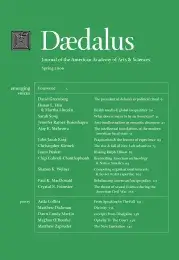Pragmatism & the lessons of experience
Experience has lessons to impart. Its ability to teach, however, turns on our willingness to learn. Attending to the lessons of human experience brought American pragmatists of the nineteenth century to a new conception of philosophy, one that embraced the fallibilism that had long defined the natural sciences. It led them back to the abiding existential questions that underpinned the Wisdom Traditions of the past in order to explore the personal, social, and political trials of the present. These thinkers established a new intellectual tradition that allows us to “learn from experience.”1
Classical pragmatism stood against the prevailing current of European philosophy, which continued to be motivated by Immanuel Kant’s insistence that philosophy should be concerned with the limits and conditions of “pure reason,” that is, reason devoid of empirical content. In contrast, American intellectuals such as Charles Sanders Peirce, William James, Jane Addams, Ella Lyman Cabot, and John Dewey held that philosophy should concern itself with the messiness of human meaning, which James acknowledged as “various, tangled and painful.” Philosophy ought to be understood, they thought, as the result of human beings thinking through the meaningful questions of living as embodied, thoughtful organisms. These questions can never be purely cerebral; they are laden with emotion, carefully negotiated in daily life, and pressed upon us in moments of personal and social crisis–always, therefore, empirically conditioned and experiential. Experience was to replace pure reason as American pragmatism’s enduring lodestone.
Pragmatism took the reconstruction of experience as its principal task: the only way to respond effectively to the dilemma that philosophy faced in the early years of the twentieth century. In 1907, William James called it the “present dilemma,” but it now is more accurate to call it a perennial one. It is the crisis that philosophy faces when it jeopardizes its own relevance. Academic philosophy has spent the better part of the past century earning a deservedly bad reputation. Since the time of Socrates and Aristophanes, philosophy has been accused of being only loosely tethered to the world of human affairs, and today the string appears to have been severed completely. As Dewey noted in 1917, the “recovery of philosophy” is only possible if philosophers are willing to take a stand with the sciences, and a variety of other academic disciplines, on the ground of human experience.
. . .
